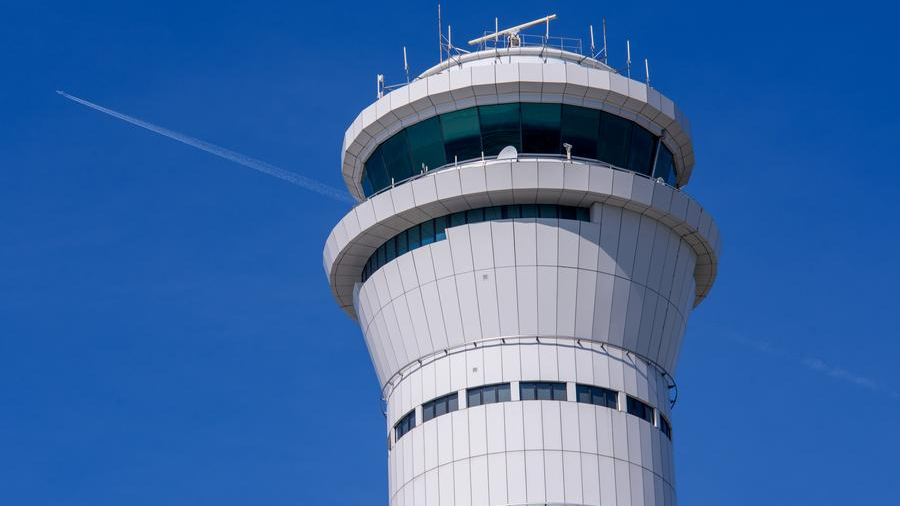An airplane flies above the Kuala Lumpur International Airport in Sepang of Selangor, Malaysia, March 9, 2022. (Chong Voon Chung/Xinhua)
KUALA LUMPUR, Sept. 23 (Xinhua) -- Cooperation through the "Air Silk Road" will enhance the air freight sector between China and the Association of Southeast Asian Nations (ASEAN), with Malaysia emerging as a key regional hub, according to aviation sector experts.
The Zhengzhou Xinzheng International Airport-Kuala Lumpur International Airport (KLIA) "twin hub" initiative will deliver a strategic advantage by streamlining end-to-end logistics, reducing transit time and improving market access, benefiting businesses and consumers on both ends of the corridor, they said.
"The initiative represents a strategic milestone in Malaysia-China economic cooperation, anchoring the ASEAN-China Air Silk Road," Raya Airways group managing director Mohamad Najib Ishak told Xinhua in a recent interview.
"This partnership not only amplifies bilateral trade and strengthens supply chain resilience but also establishes Malaysia as a critical logistics hub within the dynamic framework of global trade networks," he said.
Mohamad Najib expressed confidence that the initiative will drive deeper economic integration among Malaysia, China and the wider ASEAN region over the next five years.
It will expand cargo capacity, improve digitalization of trade processes and strengthen multimodal connectivity, positioning the twin hub as a leading air freight corridor in Asia, he said.
A staff member loads a cargo plane at Xinzheng International Airport in Zhengzhou, central China's Henan Province, Aug. 1, 2023. (Xinhua/Li Jianan)
Meanwhile, Pete Chareonwongsak, chief executive officer of Teleport, the logistics arm of Malaysia-based Capital A Berhad, said the initiative will consolidate air freight from ASEAN and leverage Zhengzhou's strengths as a key logistics hub, connecting the rapidly growing ASEAN consumer market with goods from China.
Pete added that Malaysia's proximity and close relations with China have made this air corridor a natural progression of trade between the two countries.
For his part, Mohd Izani Ghani, managing director of Malaysia Airports, a major global airport operator, noted that strong cross-border e-commerce demand, complemented by both freighters and passenger aircraft belly capacity, has made the Zhengzhou-Kuala Lumpur corridor one of the fastest-growing routes in its network and is driving the sector's development.
"To sustain this momentum, we have been expanding capacity at KLIA. New facilities have transformed how cargo moves through our airport," he said.
"Next, Selangor Aero Park will provide Malaysia's first dedicated industrial park for aviation and aerospace supply chains, while a planned transshipment terminal will strengthen KLIA's role as a hub for high-value and perishable goods," he said.
Mohd Izani added that Malaysia Airports is working closely with the government to further improve clearance times, expand free zone facilities, and modernize screening processes, as well as digitize free zone documentation and introduce an online truck-queue system to alleviate congestion and enhance data capture to improve efficiency.




 A single purchase
A single purchase









